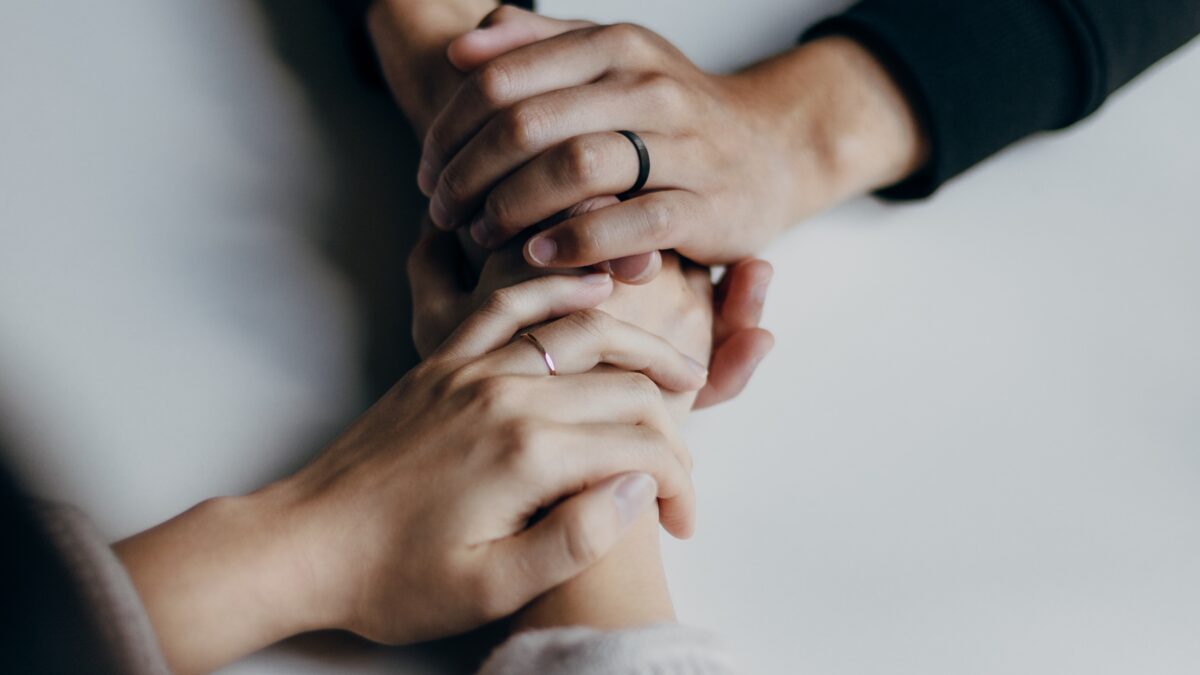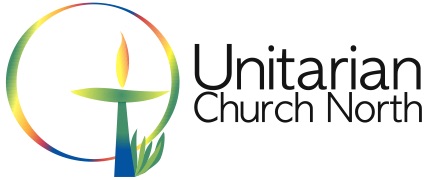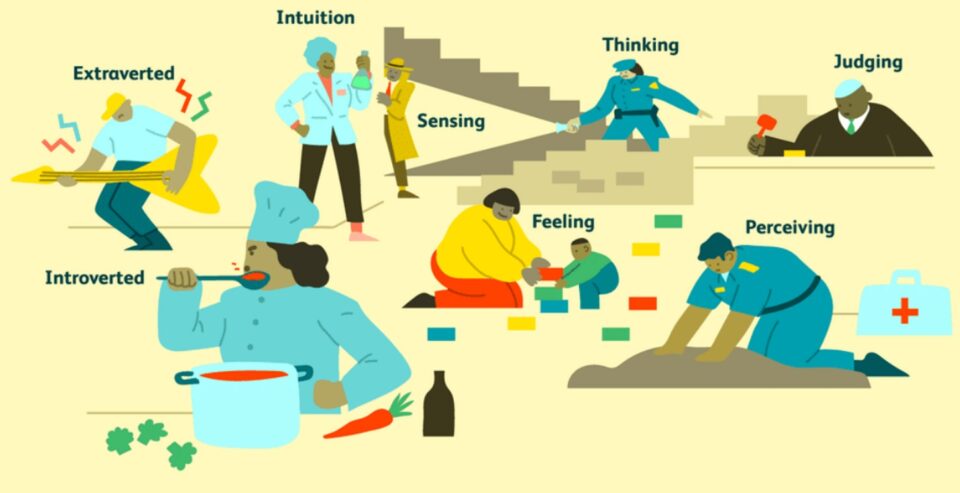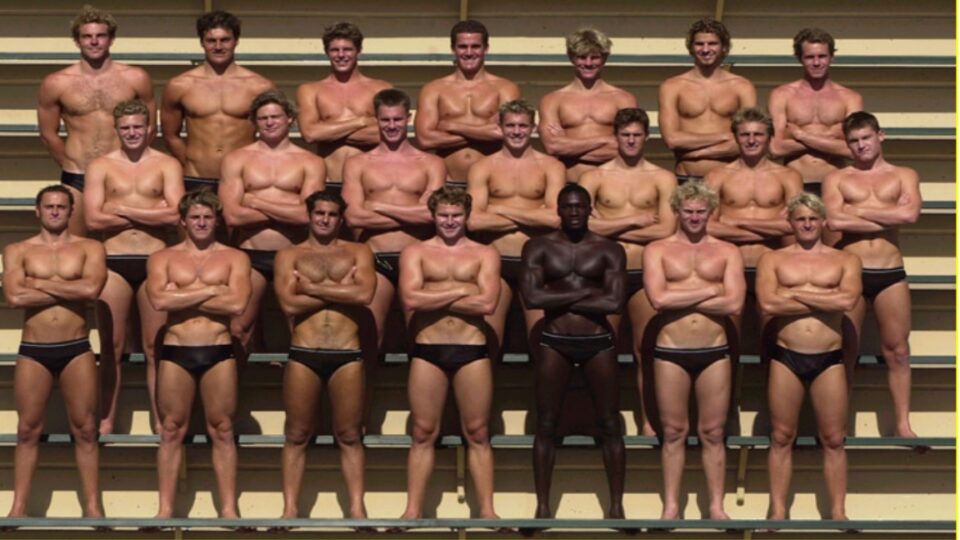Tender Mercies

Tender Mercies
Rev. Dr. Tony Larsen
Nov. 20, 2022
There once was a farmer who called a real-estate company to help her sell her farm. And so a real-estate broker came over and wrote an ad for the property. The ad was supposed to go in the paper, so the broker read it to the farmer first, to make sure she approved. And when the broker was finished reading it out loud, the farmer said, “Please don’t put that ad in the paper.”
The broker asked, “Why not? Don’t you like it?”
“Oh yes,” said the farmer. “I love it.”
“Then why don’t you want me to put it in the paper?”
“Because, after listening to that ad, I realize I’ve been wanting a place like that my whole life!”
**************************************************
Have you ever felt that way, when you thought about your own life, and you realized you already have a lot of the things you would want in a life--even if they weren't always the things you were thinking about when you were busy making plans?
Well, my sermon today is not about the big and great things that we may be told to be grateful for--like truth or beauty or goodness--but the little nearby things we already have or experience, but maybe haven't paid that much attention to. You could call them "tender mercies" (as in the King James version of Psalm 25:6: "Remember, O Lord, thy tender mercies and loving kindness, for they have ever been of old"). These are the tender mercies we sometimes see, or sometimes give, and sometimes receive. (A kind of "fragile gratitude.")
For example, what is it that gets you up in the morning and makes it worthwhile to go through another day? I suspect that the things which immediately come to mind are not global things like peace, or love, or truth. (I doubt that many of us get up in the morning thinking, "Oh boy, another day to bring peace into the world…")
No, I think most of us get up for some of the smaller items--the things we would give thanks for if asked what makes life worth living: That cup of coffee in the morning (or, in my case, Diet Coke); a song we heard on the radio; a kiss from someone we love; the view outside our window; a chocolate-covered donut. These may sound trivial--but I think they are reason enough for thanks-giving.
Things like the way your dog reacts when you come home after a long day. The friendly hello you get at your bank or grocery store. The smile you see on a baby's face when you play peekaboo. And (for me) dandruff shampoo. (I'm really grateful for that.)
These are small things, it's true. But they put you in touch with the big ones. Your morning coffee is your wake-up to the world. Feeding your cat is communion with the animal kingdom. Reading a book is sharing another person's thoughts across space and time--it's your way of entering another person's mind, sometimes from long ago or far away. The friendly hello at the bank is a model of friendship throughout the world; in its own way it is a symbol of peace. All these little things are threads connecting you with the big ones.
When you give a goodnight kiss, you are thereby connecting yourself with the spirit of love--whether that kiss is for your child, your spouse, your friend, or your pet gerbil. When you do something kind, you are in effect saying that the person you're doing it for has inherent worth and dignity. And if you've living for a walk by the lake or a morning's sunrise, then you're living for beauty and you're living for harmony with nature.
I say, if you're giving thanks for the small things, then you're already giving thanks for the big ones. Because life is a web of interconnectedness, weaving together the coffee with the sunrise, the neighborly hello with peace among the nations, the goodnight kiss with our experience of... God...or love. All these are of a single fabric: the smiles, the parakeets, the sacrifices made out of love, and those occasional chocolate-covered donuts. (And dandruff shampoo--did I mention that?)
This is what I call "the All in the small." The big picture hidden in the little one. And I say: Once you're willing to see life that way, it becomes more than it was. And what appeared, on its face, to be steeped in lowly clay…gathers a spiritual dimension that wasn't evident before.
A minister I know, the Rev. Barb Pescan (who used to be the senior minister at the UU church in Evanston, Illinois) once told this story about a man she came to know who had the AIDS virus back in 1984, when most people didn't survive it.
She said:
In 1984 I was on the first board of the AIDS Pastoral Care Network in Chicago. The AIDS epidemic was primarily among gay men, then. Because I felt it wasn’t enough love the gay ment I knew, I scouted around for what I could do to be of help. Somehow, I got found by a Claretian brother who was involved in starting the Pastoral Care Network. Through serving on this board, I met John.
John was an artist. He was six foot six inches tall, blond and good-looking. He was a gentle fellow with many close friends who now and then came to be with him from all over the country. Self-described, he was a “lapsed Presbyterian” and “not very religious.” I first met him surrounded by his friends, on the AIDS ward at Cook County Hospital, where he was recovering from his first bad bout with pneumonia.
I spent time with him once a month or so, each time he was in the hospital. He showed me his garden. I got to see his Christmas tree, decorated top to bottom, with tinsel and Polish glass ornaments gathered over many years. And, I was privileged to be with him when, again surrounded by his friends and his family, deeply medicated to ease his suffering, he breathed his last.
But two weeks before that, I visited him in hospice. I don’t know where my head was, but I did not realize at first that his death was so close. It was a cold day in October. He weighed about 120 pounds, was very weak, and was lying on the couch in his hospice room. I sat down in silence. I looked at him and we smiled at each other. Internally, I was reeling: What do I say? My friend is dying. What can I possibly say?
At last I heard him ask, “When I die, will you do my memorial service? I said, “Of course.” A beat or two of silence passed. Then John said, “What is a memorial service?” We laughed and I told him about music and readings, and that some friends might say a few things, and that I would pray, if he wished, and say all the good things about him I could think of…and then we could go to his apartment and have chocolate things. He said that sounded just right, and could his friends who sang sing “The White Cliffs of Dover?” Of course.
Then we were silent again. I asked, “May I do anything for you?” He asked, very shyly, and quietly, “Yes. Will you rub my butt?” He turned on his side. I sat next to him on the couch and put his lower legs in my lap and carefully massaged his lower back and buttocks–he had grown so thin, it hurt him to sit or lie for very long on his bones. After a while he said that was enough. I returned to my chair and, again, we sat in silence. Then, he asked if I would go to the bedside table and bring the plate that was there. His mother’s neighbor had made angel food cake for him. I brought it to him. He broke off a piece and gave it to me, and we ate quietly. Silent again, we looked at each other, just took each other in.
He shut his eyes. Shall I go? “I am tired,” he said. I put on my coat and kissed him on the forehead. He held my hand. He said, “I love you, Barbara.” I said, “I love you, John.” I left and two weeks later got the call to come to be with him as he died.
What Rev. Pescan noted especially from her experience with John was that she never really knew the right things to say to him. She wanted to help in some way, but there seemed to be nothing she could do. But, as she thought about it later, she realized that she and John had had the essence of the last rites--the "anointing of the sick"--without knowing it at the time!
Think about it: John asked for a laying-on of hands--only it wasn't on his forehead but on his butt, which was so sore. They had holy communion--only it wasn't with wafers but with angel-food cake from his mother's neighbor. And they both blessed each other with this simple but holiest of all benedictions: "I love you." ("I love you, Barbara." "I love you, John.")
You know, sometimes we think that great religious experiences happen in churches or in mystical trances or miraculous events--when they're happening all around us, all the time--only we're not usually paying attention.
Thanksgiving--and the time after it--is the time to pay attention: pay attention to the little miracles around us, the people and things in our lives that connect us to something much bigger than we usually see. (The All in the small.)
The houseplant you have in your living room which uncomplainingly transforms your carbon dioxide into oxygen every day, thus helping to make it possible for you to live.
The pictures on your walls that connect you to the people who were in them or who created them--and to beauty itself.
The cat which may ignore you some of the time but who you know does appreciate your presence, especially when you're scratching its ears or opening a can of tuna.
The books you read that take you on voyages to other places and other times, and even other worlds.
The friend or partner who makes you laugh (or, better yet, laughs at your jokes, even when no one else will).
The teachers, past and present, who have introduced you to new knowledge and sometimes believed in you when no one else would (not even you yourself).
All of these are part of something much bigger than you: life, love, truth, wisdom. Or, as the late UU minister Kenneth Patton once put it:
The world is always radiant.
The universe never sleeps.
It is we who become weary and inattentive.
Then we look up,
And we’re surprised to see
The revelation that has been there all the time…
Waiting for us to see.
If you would know the fullness of the moment,
Ponder one whisker on the face of a cat;
Think on a glint of sunlight
Dancing on the early morning floor:
Pick up any lost and idle feather,
For in its filigreeIs caught the flight of flocks of birds;
fondle any twig,
For it has a memory of forests;
Kiss one person
For she or he is the fountain of all love and life.
Hold close one child,
For its tiny bones
Carry the promise of all coming generations.
Live this moment in its fullness,
for in it Is all plentitude, all realization, and all time.
**************************************************
The last thing I want to say is that 40 years ago this fall--back in 1982, and right at this time, actually--I was still a young minister, in my 7th year as pastor at the UU church in Racine. And at that time, as part of a UUA program, I went to a congregation in Oneonta, New York that hadn't had a minister for several years. (Now, I had never heard of Oneonta before. It seemed far away to me, and maybe out in the wilderness somewhere. They even sold a t-shirt there that said "Oneonta, New York: It's not the end of the world…but you can see it from there.")
Anyway, I went as a "minister-on-loan" for 6 weeks, as part of a UUA program to help small congregations consider ministry. My job was to help them see what it would be like to have a minister--so that they could decide whether they wanted to try to raise the money to call one eventually.
So I went there for six weeks in the fall of 1982 and attended meetings, did services, led adult religious-education classes, and started a children's choir and an adult choir, and went to sleep-overs and did a marriage-renewal ceremony, and just generally wore myself out. (In fact, when I came back to Wisconsin I got a card from some of the people there that had a picture of a man lying on the floor, unconscious, and a woman leaning over him with sadness in her eyes. And inside it said, "It was fun while you lasted.")
I had many good experiences while I was there (and they did later vote to call a minister, so I'm still happy about that). But there was one thing that was kind of hard for me. And that was saying good-by to a little girl named Serena. Serena was 7 or 8 years old, and she was one of the children I dedicated while I was there. She sang in the children's choir, and was at both church sleep-overs, and her mother was the church administrator, so Serena came to the church with her sometimes and would draw or play or--more often--follow me around. Her mother was divorced, and though Serena saw her dad, I guess she needed a little more. I realized that one day when she told me, "I always follow my dad around too, and you're like a dad."
I felt a pang of what Shakespeare once called "sweet sorrow"--because I knew I would be leaving in a few days. I also knew that I would probably never have children of my own.
On the last Sunday, Serena did an interpretive dance for the service. She was so excited. And she was so proud. There she was--this little human being. It's hard to imagine so much thinking and feeling all contained within that fragile, delicate body.
Anyway, on my very last day in Oneonta, Serena came to say good-by, and I looked into her eyes, and she looked into mine, and there were tears in her eyes, and there were tears in mine too. Because I wished I could be her father.
I thought of the book The Little Prince (by Antoine de St.-Exupery), about the fox wanting to be "tamed" by the little prince, even though it would mean great sorrow when they had to part.
Well, I was definitely "tamed" by Serena. But I never really knew how much she had been tamed by me--until I got this letter from her, about 20 years later.
Dear Tony,
I don’t know if you remember me–my name is Serena T------. …I guess I was 7 or 8 years old when you came to our church in Oneonta NY–I’m 25 now. Do you remember that I wanted you to marry my mom? …I found you so preferable to my actual step father-to-be! Anyway, I just became a god-mother to a little girl and I just wanted to thank you for being such a source of warmth in my childhood. You were about the only loving and supportive man I encountered growing up, even though you were only at the church for--what, 6 weeks or so? Regardless of the length of time, I loved you very much as a little girl, and I often thought of you over the years…In case you’re ever feeling you haven’t made a difference, I just wanted to write now and let you know I valued your presence in my life.
In case you ever wondered what became of that skinny, wispy-haired little girl…I went to college at Hampshire, in Amherst, MA, where I studied agriculture and women’s studies. …Since college I’ve worked either as a carpenter, or a farm worker–with some child-care thrown in. …I’m living now in MA, by myself, and working full-time as a carpenter. …I’m feeling very happy with my life now. I get a lot of joy from being outside, working with my dogs and the sheep at my place, doing carpentry, and learning about myself and relationships.
Anyway, I just wanted to make contact with you and let you know how much your love and kindness has stayed with me since I was a little girl. I remember clearly crying with you in the parking lot when you were getting ready to leave. You were probably the only adult man I knew who didn’t make me feel threatened, or insignificant, or scared. Thank you for paying attention, for caring, for your presence in my past. Know that you touch many lives.
Love,
Serena
We all touch many lives, A
And many lives touch ours.
Let us be grateful
for all the tender mercies,
bestowed upon us and by us,
within us and around us–
yesterday, today, and in all the days to come.



